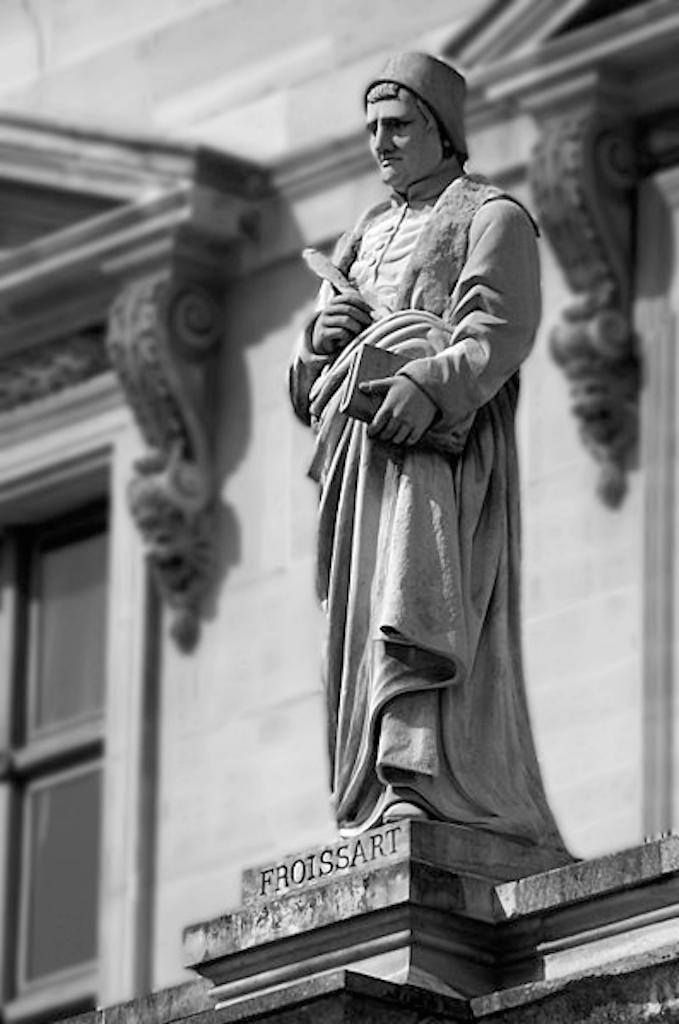Jean Froissart, French poet, historian, and, as John of Castel Neuf identifies him in “Concerning Geffray Teste Noire,” canon of Chimay, lived between roughly 1333 and 1400. Born in Valenciennes, Froissart received his education from the Church before embarking on a literary career. After writing for a number of different patrons, he became the personal secretary of Philippa of Hainaut who was then Queen of England and who had also been born in Valenciennes. He wrote poetry while working for Philippa, and both before and after her death in 1369, just as the Caroline War broke out, he composed Méliador, a chivalric verse romance.
Froissart’s most significant text, however, remains Chronicles, his history of the Hundred Years War which is also a central text to understanding medieval chivalry. Froissart wrote Chronicles over a forty-year period in which he traveled throughout Europe and interviewed numerous participants in various battles and other historical events. His text celebrates the nobility and a chivalric lifestyle quickly vanishing from medieval English and French culture. He worked with noble patrons for the rest of his life, and even personally presented Richard II with a manuscript collection of his poems in the years shortly before both the King’s and the poet’s deaths.
Morris’s admiration for Froissart’s Chronicles stretches beyond his debut volume, The Defence of Guenevere, which includes a number of poems based on characters and events from the medieval history, such as “Sir Peter Harpdon’s End,” “The Haystack in the Floods,” and “Sir Giles’ War-song,” and, of course, “Cncerning Geffray Teste Noire,” amongst others. In 1886, almost thirty years after publishing that first volume of poetry, however, Morris was still incorporating Froissart into his work, as seen in his The Dream of John Ball, originally published serially in the Commonweal. Froissart wrote about Ball and his sympathetic concerns regarding the state of the common people in his Chronicles.
Little can be stated with certainty about Froissart’s life, and some historians have relied on first-person pronouncements in his poetic and historical works which may be best approached with skepticism. In the 1370s, he became a pastor, and eventually he was named the canon of Chimay. He appears to have died in Chimay in the early years of the fifteenth century.



